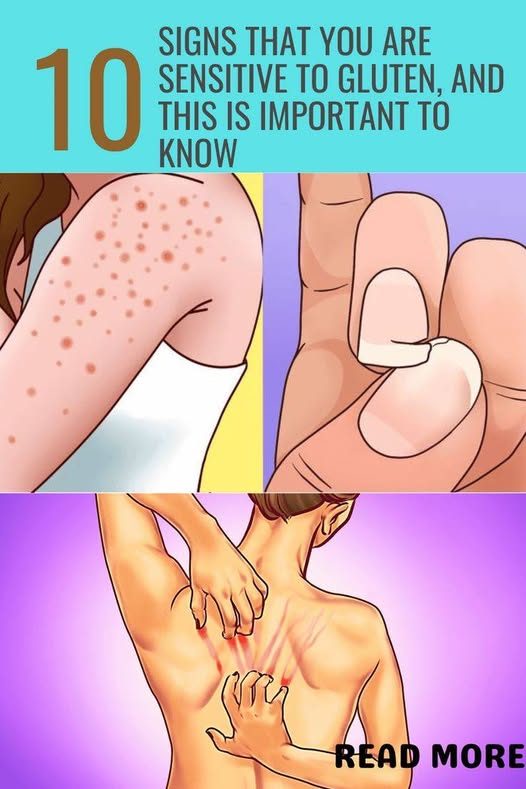ADVERTISEMENT
#### 9. **Chronic Sinus Congestion**
If you have frequent **sinus congestion**, a stuffy nose, or sinus headaches, gluten sensitivity could be the culprit. Some people with gluten sensitivity report respiratory symptoms such as sinus inflammation, post-nasal drip, or even coughing after consuming gluten-containing foods.
#### 10. **Hormonal Imbalances**
For some individuals, gluten sensitivity can affect the **hormonal system**, leading to imbalances that affect menstrual cycles, fertility, or mood. Gluten can trigger inflammation that interferes with hormone production and regulation, resulting in symptoms such as irregular periods, infertility, or even PCOS-like symptoms.
#### How to Determine If You Are Sensitive to Gluten
If you suspect that you may be sensitive to gluten, the first step is to **consult with a healthcare professional**. There is no definitive test for gluten sensitivity, so the diagnosis is typically made through a process of elimination.
Here are some steps to consider:
1. **Eliminate Gluten**: The best way to test if gluten is causing your symptoms is to eliminate it from your diet for at least 2–4 weeks. During this period, avoid all foods containing wheat, barley, rye, and other gluten sources.
2. **Monitor Symptoms**: Keep track of your symptoms while following a gluten-free diet. Many individuals experience significant relief from their symptoms once gluten is removed from their diet.
3. **Reintroduce Gluten**: After the elimination phase, slowly reintroduce gluten-containing foods and see if your symptoms return. If they do, it may indicate that gluten is the trigger.
4. **Consult a Doctor**: It’s important to work with a healthcare provider or nutritionist during this process to rule out other possible conditions and confirm your findings.
#### Conclusion
Gluten sensitivity can cause a wide range of symptoms that affect different parts of the body, from digestive issues to skin problems and even mood changes. If you experience any of the **10 signs** mentioned in this article, you might be sensitive to gluten. The best way to confirm this is through an elimination diet, with the guidance of a healthcare professional.
If gluten sensitivity is indeed the cause of your symptoms, removing gluten from your diet may lead to significant improvement in your overall health and well-being. Always remember to seek professional advice before making any drastic changes to your diet to ensure you’re getting the right nutrition.
ADVERTISEMENT
